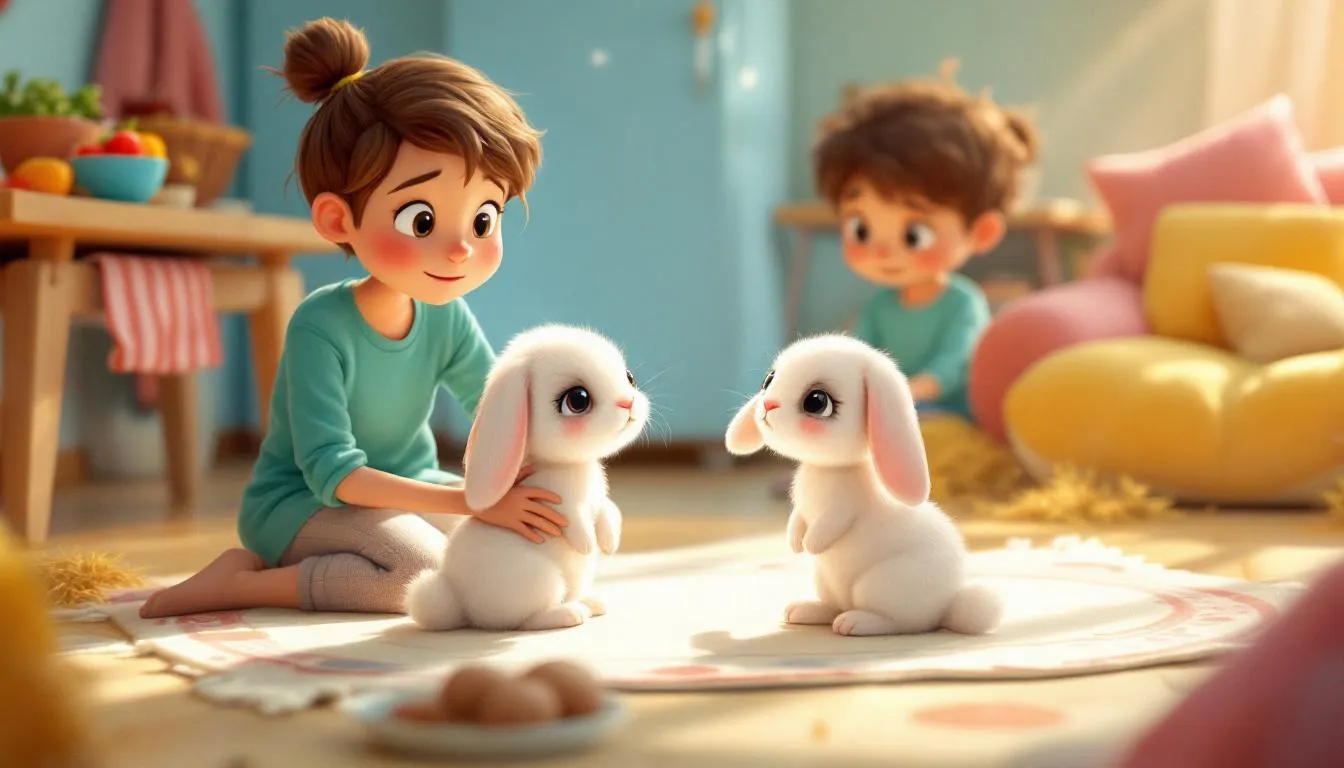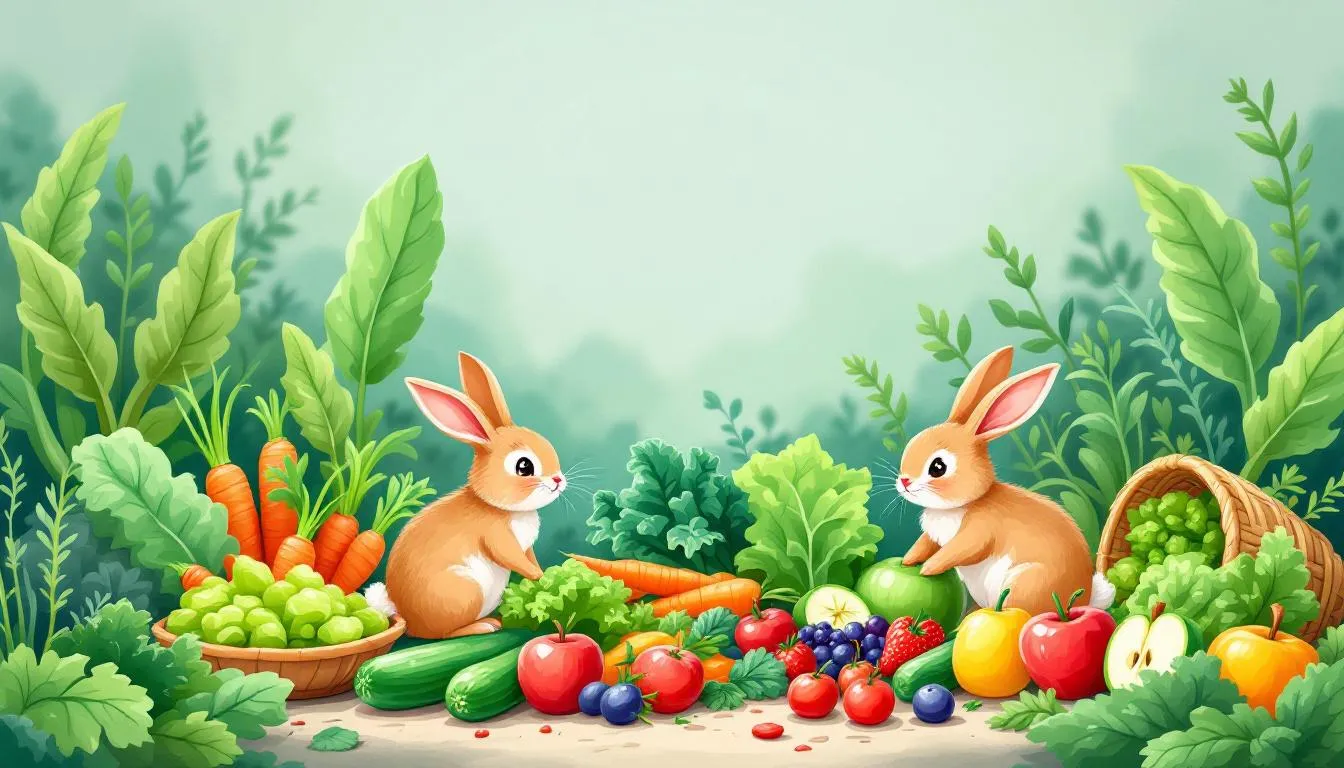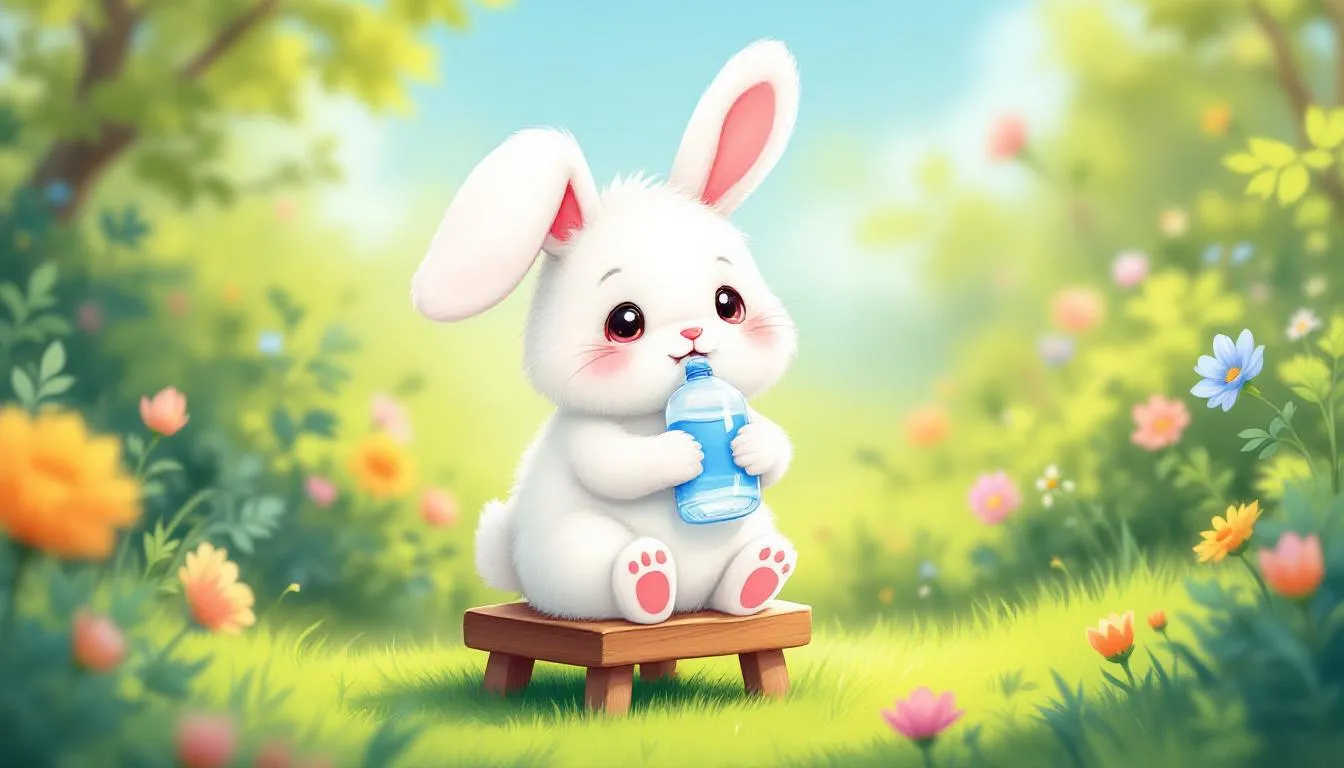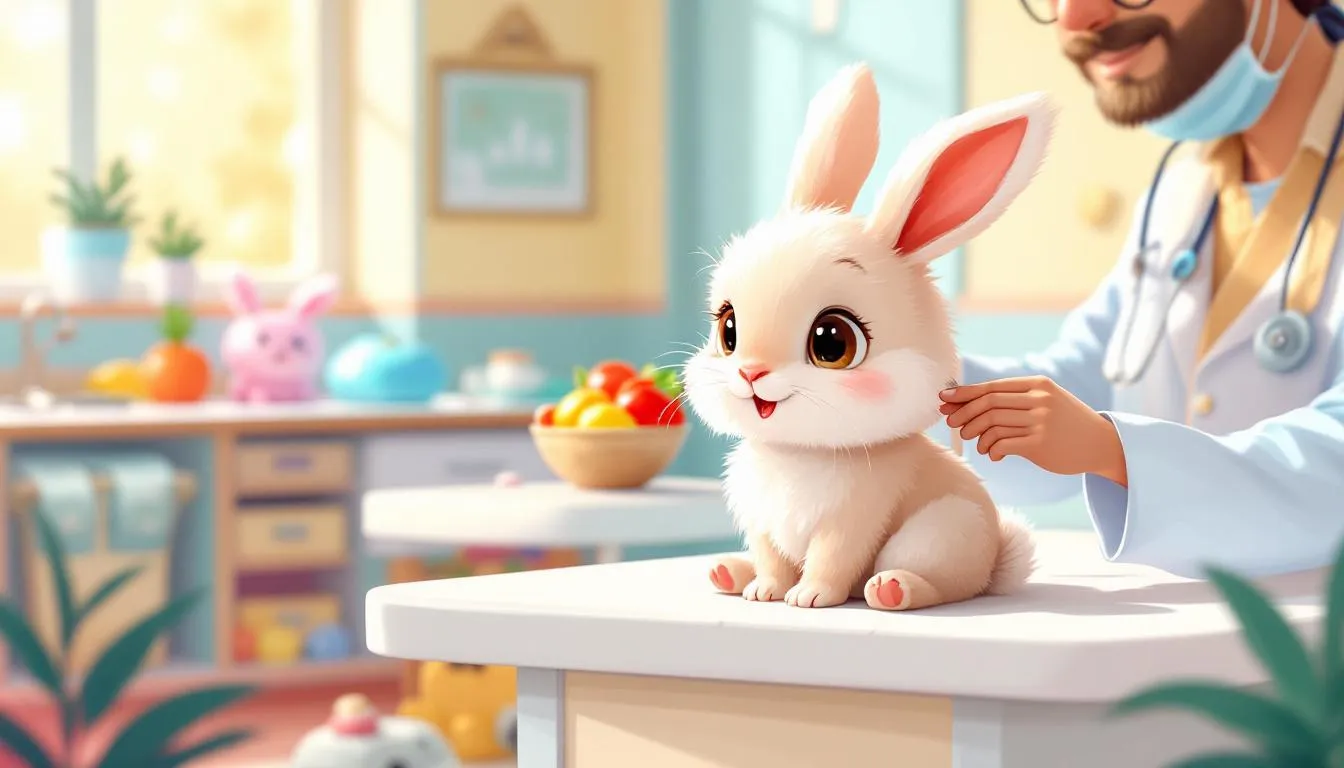What to Do When Your Rabbit Isn’t Eating: How to Get Your Rabbit to Eat
If your rabbit isn’t eating, quick action is essential. In this article, we cover how to get rabbits to eat again. Learn why they might have stopped, how to address health issues, and ways to make their environment stress-free to encourage eating.
Key Takeaways
-
Sudden loss of appetite in rabbits can lead to serious health risks; immediate veterinary consultation is crucial.
-
Environmental factors, dental health, and stress can significantly impact a rabbit’s eating habits and overall health.
-
Providing favorite foods, ensuring hydration, and considering assisted feeding can help stimulate a rabbit’s appetite during health issues.
Recognizing the Problem: Why Your Rabbit Stopped Eating

When a rabbit stops eating, it’s a significant concern. A rabbit can face a life-threatening condition within a day of not eating, making immediate veterinary consultation vital. Prompt action is needed as a rabbit’s health can decline rapidly without proper nutrition.
Common reasons for a rabbit to stop eating include the most common reason:
-
Dental issues
-
Gastrointestinal stasis (GI stasis) is a condition where intestinal contractions stop, leading to a loss of appetite. Gastrointestinal stasis is a serious condition in rabbits that can lead to death if left untreated.
-
Stress
-
Other health problems, such as dental disease, organ failure, and infections
Observing your rabbit’s behavior and eating patterns early on is crucial for recognizing these issues.
A clear sign of a rabbit losing its appetite is untouched food. If your rabbit is in a new environment, give it 24-48 hours to adjust and observe its behavior. If the lack of eating continues beyond this period, seek help from a rabbit-savvy vet immediately.
Assessing Your Rabbit’s Environment
A rabbit’s environment significantly affects its health and eating habits. New pets, loud noises, or temperature changes can cause a pet rabbit to lose its appetite. A quiet and familiar environment helps reduce stress and encourages normal rabbit eating habits, just like it does for bunnies.
Observing your rabbit’s behavior gives insights into their comfort levels. Hiding or unusual aggression can indicate environmental stress. A stable and consistent living situation helps keep your rabbit relaxed and more likely to eat.
Key recommendations for maintaining your rabbit’s health include:
-
Providing unlimited access to Timothy hay or other grass hay which is vital for dental and digestive health. Rabbits require constant access to high-fiber hay to maintain proper digestive health and appetite.
-
Offering fresh, pesticide-free vegetables in moderation.
-
Ensuring a stress-free environment with a comfortable living space and a consistent routine to maintain health and appetite.
Encouraging Appetite with Favorite Foods

Offering favorite foods is a simple way to stimulate your rabbit’s appetite. Leafy greens like arugula and parsley can entice your rabbit and spark interest in eating. These greens are tasty and packed with nutrients beneficial to your rabbit’s health. Additionally, herbs like basil, mint, and parsley can be used to further stimulate a rabbit’s appetite.
Small portions of fruits like bananas and apples can serve as treats to encourage nibbling. Key points to consider are:
-
Fruits should be given sparingly due to their high sugar content.
-
They can effectively stimulate appetite.
-
Offering these treats in small amounts can significantly increase your rabbit’s willingness to eat. Restrict sugary treats to 1–2 tablespoons per day to prevent appetite loss for hay.
-
Fruits should be given sparingly due to their high sugar content.
-
They can effectively stimulate appetite.
-
Offering these treats in small amounts can significantly increase your rabbit’s willingness to eat.
Always provide fresh, pesticide-free foods, including lettuce. Using your rabbit’s favorite foods strategically can encourage eating and a return to a good rabbit diet with fresh water.
Checking for Dental Issues
Dental issues often cause rabbits to stop eating. Overgrown or abscessed teeth can cause pain and make it difficult for your rabbit to chew. Rabbits’ teeth continuously grow throughout their lives, requiring regular wear down from their diet. Signs of dental problems include:
-
Overgrown incisors
-
Drooling
-
Mouth sores
-
An underbite can also indicate potential dental issues.
To inspect your rabbit’s incisor teeth and gums:
-
Gently part your rabbit’s lips.
-
Check for dental malocclusion, where teeth don’t meet correctly, as this can cause discomfort and lead to a refusal to eat. To check a rabbit’s dental health, gently part its lips to examine the alignment of the incisors.
-
Seek veterinary attention promptly if you notice any abnormalities.
Regular dental check-ups help prevent issues that can lead to appetite loss. If dental problems are detected, trimming or removing the teeth may be necessary. Monitoring your rabbit’s dental health ensures it maintains a healthy appetite. If a rabbit has malocclusion, it may require regular tooth trimming or even tooth removal by a vet.
Hydration and Extra Fluids

Hydration is as important as nutrition for your rabbit’s health. To ensure your rabbit stays hydrated and receives extra hydration:
-
Make sure your rabbit has access to fresh drinking water.
-
Check the water bottle regularly to ensure it’s not blocked, preventing your rabbit from drinking.
-
Offer a fresh bowl of water, which can effectively help a dehydrated rabbit.
Adding a small amount of fresh pineapple juice to the water can encourage your rabbit to drink more. This makes the water more appealing and helps keep them hydrated. Proper hydration supports your rabbit’s digestive system and overall health.
Seek veterinary assistance if your rabbit avoids drinking to explore other hydration methods like IV fluids.
Assisted Feeding and Syringe Feeding
Assisted feeding might be necessary to ensure proper nutrition if your rabbit isn’t eating. Syringe feeding can support a rabbit with gastrointestinal stasis (GI stasis) or other conditions. Adjust feeding mixtures with warm water to create a paste suitable for syringe use. Syringe feeding should be done carefully to avoid aspiration and choking.
Brands like Oxbow offer specialized products like RecoveryPlus, a complete rehydratable diet for sick or recovering rabbits. The next subsections will delve deeper into the products available and the procedure for syringe feeding.
Products for Syringe Feeding
Brands like Oxbow, Supreme, and Burgess offer specialized foods for syringe feeding rabbits. These products provide the necessary nutrients for a rabbit unable to eat on its own.
For instance, the Science Selective Recovery syringe is specifically designed for this purpose. It features a long nose and wide bore for easier administration of fluids and feeding mixtures. Syringe feeding ensures your rabbit regains its appetite and receives adequate nutrition during recovery.
Procedure for Syringe Feeding
Syringe feeding involves a few careful steps. First, wrap your bunny rabbit in a towel like a burrito to keep it calm. This helps manage the rabbit and prevents it from struggling during feeding.
Next, administer the food slowly by following these steps:
-
Give the rabbit small amounts, around 1ml per mouthful.
-
Allow time for the rabbit to swallow between each syringe to prevent choking.
-
If the rabbit refuses to swallow or shows distress, stop feeding and reassess the situation. Offer fresh, tasty food after syringe feeding to stimulate a rabbit’s appetite.
-
Give the rabbit small amounts, around 1ml per mouthful.
-
Allow time for the rabbit to swallow between each syringe to prevent choking.
-
If the rabbit refuses to swallow or shows distress, stop feeding and reassess the situation.
When done correctly, syringe feeding can be a lifesaver for a rabbit that isn’t eating. It provides necessary nutrition and aids in recovery through syringe feed.
Veterinary Attention

Knowing when to seek veterinary attention is crucial. Immediate veterinary care is needed if your rabbit shows symptoms like itching or scratching:
-
labored breathing
-
seizures
-
Unresponsiveness Gastrointestinal stasis (GI stasis) can become serious without early treatment, so timely veterinary intervention is essential.
A vet may recommend IV fluids, pain medications, and gastric motility drugs. Critical Care is often used to feed and hydrate rabbits that aren’t eating. If your rabbit hasn’t eaten or drunk anything for over half a day, act quickly. Feed them recovery food or a rabbit-specific formula like Critical Care.
The vet might recommend the following to diagnose the problem, as suggested by vets:
-
Dental examinations
-
Blood tests
-
Urine tests
-
Fecal tests
-
X-rays
Always contact your vet for guidance, even when trying home remedies, to ensure your rabbit receives the best treatment from only a vet.
Preventing Future Appetite Loss
Maintaining a good diet and regular health check-ups prevents future appetite loss. Providing unlimited grass hay, including orchard grass, and leafy greens prevents digestive problems. A rabbit’s diet should be 70-80% high fiber hay to ensure proper gut motility and dental health. Providing unlimited fiber-rich hay in a rabbit’s diet helps maintain dental health by promoting natural wear of teeth.
Regular dental check-ups a few times each year prevent issues that can lead to appetite loss. Keeping the rabbit’s body environment stable and free of stressors helps maintain a healthy appetite, so owners should not be worried. Additionally, not all owners know what a rabbit eats to ensure proper nutrition, especially when considering how well the rabbit is fed.
Using a rabbit probiotic during illness or medication supports gut health. Following these preventive measures helps ensure your rabbit remains healthy and maintains a good appetite.
Summary
In summary, a rabbit’s loss of appetite is a serious issue that requires immediate attention. Recognizing the problem early, assessing the environment, encouraging appetite with favorite foods, checking for dental issues, ensuring hydration, and knowing when to seek veterinary attention are all critical steps in addressing this issue.
Taking proactive measures to prevent future appetite loss through a balanced diet, regular dental check-ups, and a stable environment can ensure your rabbit remains healthy and happy. Remember, your attentive care and prompt action can make all the difference in your rabbit’s well-being.
Frequently Asked Questions
What should I do if my rabbit stops eating?
If your rabbit stops eating, seek veterinary consultation immediately, as their health can deteriorate rapidly without food. Prompt action is essential for their well-being.
How can I encourage my rabbit to start eating again?
Encouraging your rabbit to eat again can be effectively achieved by offering their favorite foods, such as leafy greens and small portions of fruits like bananas and apples. This approach can help stimulate their appetite and entice them to start eating.
What are common dental issues in rabbits that affect eating?
Common dental issues in rabbits, such as overgrown or abscessed teeth and incisor malocclusion, can lead to pain and affect their ability to eat, ultimately resulting in a diminished appetite. Addressing these conditions promptly is essential for their health.
How can I ensure my rabbit stays hydrated?
To ensure your rabbit stays hydrated, regularly check that their water bottle is functioning and offer a fresh bowl of water daily. You might also add a small amount of fresh pineapple juice to encourage drinking.
When should I seek veterinary attention for my rabbit?
You should seek veterinary attention for your rabbit immediately if it exhibits labored breathing, seizures, unresponsiveness, or has not eaten or drunk anything for more than half a day. Timely intervention is crucial for your rabbit’s health.



